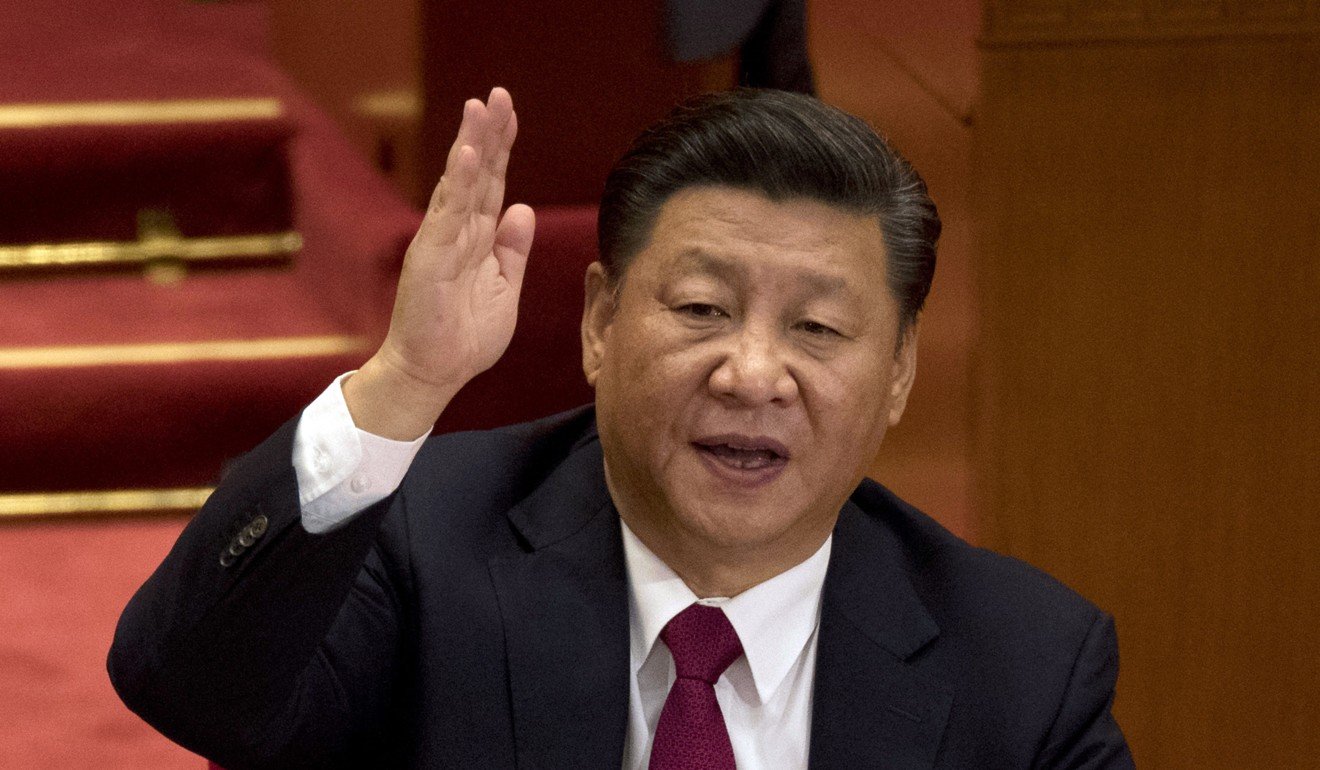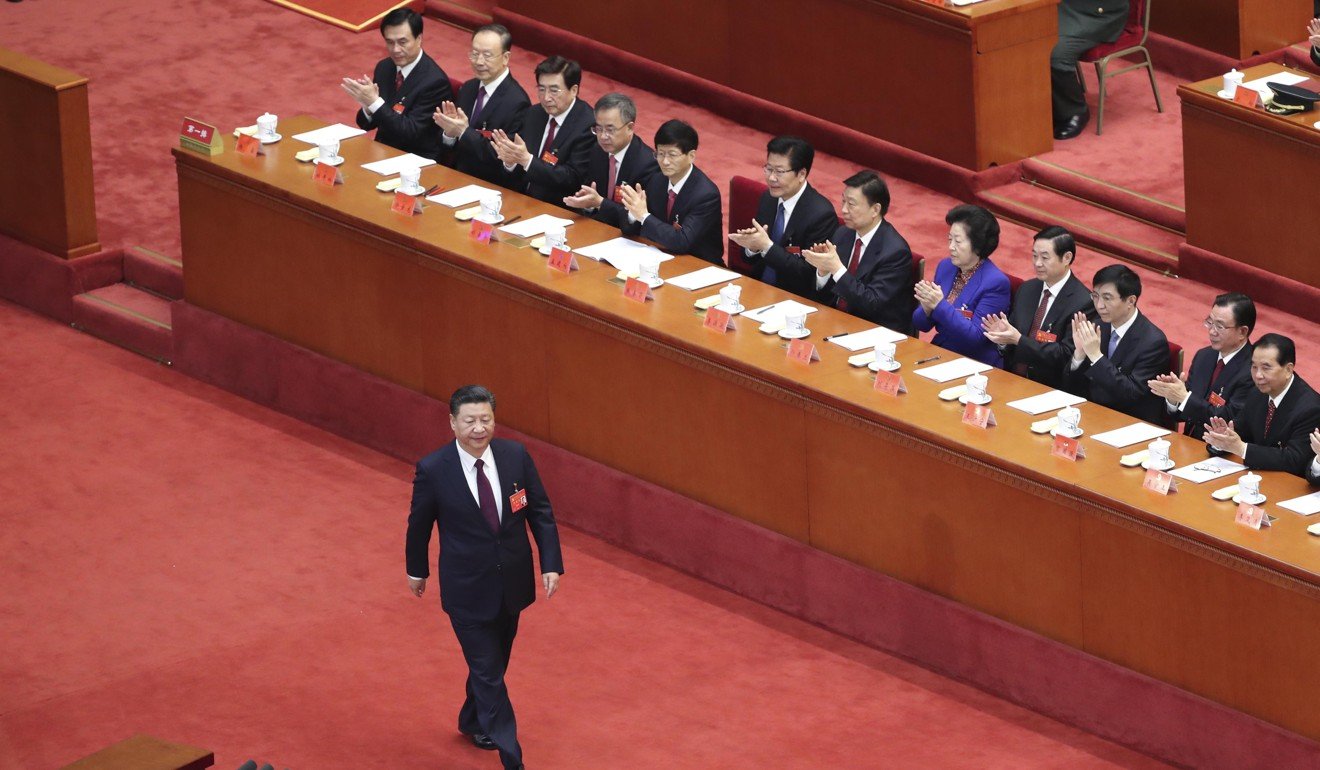
Xi Jinping Thought – the Communist Party’s tighter grip on China in 16 characters
The president’s political philosophy is a nationalist appeal to restore the country to greatness
The Communist Party is set to strengthen its hold on all aspects of Chinese society with the inclusion of President Xi Jinping’s tongue-twisting, 16-character political philosophy in the party’s canon.
Xi foreshadowed the tighter grip last week when he detailed his approach to governance at the start of the party’s national congress.
“Government, the military, society and schools, north, south, east and west – the party leads them all,” he said.
The president’s theory – “Xi Jinping Thought on Socialism with Chinese Characteristics for a New Era” – will be written into the party’s constitution, making him the third leader after Mao Zedong and Deng Xiaoping to have his name attached to a philosophy in the charter.
Comprising 14 parts and cloaked in dense terminology, Xi’s thought is a nationalist appeal to restore the country to greatness – a “China dream” of rejuvenation that Xi advanced soon after taking office.
Steve Tsang, director of the SOAS China Institute at the University of London, said the result would be tighter and more centralised leadership.
“Everything from north to south and under heaven will be ruled by the party. The loosened party rule before Xi’s leadership was the reason for him to reiterate and reinforce the thought to the country,” Tsang said.
“If you oppose Xi Jinping, then you oppose the party.”
A key element of Xi’s philosophy is the rigid enforcement of one-party rule, with further blurring of the line between the party and the state.
That integration is exemplified by the plans to set up a National Supervision Commission – an overarching state anti-graft body that will share the same office and personnel as the party’s anti-graft watchdog, the Central Commission for Discipline Inspection.

The approach is a sharp contrast to Deng’s drive for greater separation between the party and the government.
Another of Xi’s priorities has been to instil discipline and loyalty in the party ranks while cracking down on graft with harsh measures meant to revive an organisation riddled with corruption, infighting and fiefdoms. In addition, Xi has sought to renew the party’s links with the grass-roots by setting up more party cells in companies, schools and villages, and through poverty relief efforts.
On the economy, Xi’s has sent mixed messages. While insisting the market should play a “decisive role” in the economy, he also expects the government to play a greater role in managing it.
He is a firm believer in strong state-owned companies, but has sought to assure private and foreign companies that China will open up its services sector and further lower barriers for foreign businesses.
Xi’s theory is heavy on the need for innovation and a more balanced tack on economic development. China’s “unbalanced and inadequate development” has become the main limitation on people building better lives for themselves, Xi has said.
He claims unbridled growth and urbanisation have created many problems, such as massive wealth inequality and severe pollution, which in turn have fuelled social discontent, making the “war on poverty” and “war on pollution” policy priorities.

Central to Xi’s thought is the focus on the “Four Self-confidences”, a need for China to have faith in its system, path, theory and culture. In the aftermath of the international political and financial upheaval of the last decade, Xi maintains that China needs to have confidence in its one-party political system and its traditional culture, as opposed to Western political ideas and values.
He tries to promote nationalism and what has been increasingly called by observers as “China exceptionalism”.
Such confidence comes with a lower tolerance for different views. In his first term, he sought to crush dissent, or what he calls “erroneous viewpoints”, with a sweeping crackdown on activists, rights lawyers and civil society as well as stringent censorship of the media and the internet.
On diplomacy, Xi has abandoned Deng’s policy of keeping a low profile and biding time. Instead, he is pushing for a more assertive, proactive approach in which China will not flinch from upholding its national interests, security and sovereignty.
And all of this is backed by the party’s absolute control over the military, the world’s largest, which Xi has overhauled and vows to transform into one of the best in the world.

